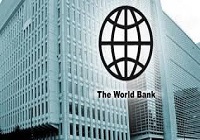Remittance – The high transaction costs and why the NRIs are losing out on their hard earned money
After a long day’s hard work under the scorching heat of Dubai, the least expectation by an Indian construction worker would be to donate a part of his pay to a bank. This is the ugly truth today, where migrant workers namely from India and Philippines are losing their money remitted to their countries because they are reduced by foreign exchange margins and fees. An estimate by World Bank is that total flows to developing countries would be worth around $400 billion which is double as that of foreign.
Remitting money has proved to be a costly affair. A report in 2009 the G8, a club dealing with rich governments has promised to cut the global average cost of sending funds from 10% to 5% over the years. Sadly we haven’t reached there yet as the average stands still at 7.7% currently. The value hasn’t improved in spite of rivals to giant money-transfer outfits such as MoneyGram and West cash. Meanwhile Africa has adopted a smart method by using “mobile money” to transfer money from one person to another through mobile phones. The advantage of using mobile money is that domestic transactions are virtually free.
An expert view has been taken in from Mr. Dilip Ratha who is from the World Bank. According to Mr. Ratha, the entire fault lies within banks who sign exclusive agreements and with other companies who are involved in handling these remittances. These companies in order to reduce competition tend to keep charges high and India has made sure it bans such tie-ups; however they are still present in Africa. In 2014 the Overseas Development Institute, a think-tank, has forecasted that the average money to Africa could be reduced by 5%, it would mean $1.8 billion more for them every year. In spite of this Mr. Ratha is highly optimistic. There is competition rising against banks and other money transfers firms are coming up, especially in London. With raise in Venture capital, they claim they can use technology to cut costs. Transfer Wise one of the transfer companies began as peert-to-peer foreign exchange service for the rich is now the quickest growing firms in India and soon would be transferring to Mexico.
To circulate money abroad is easy but the hard part is ensuring this money reaches spouses and parents in poor countries, who may not have access to bank accounts. Money transfers such as MoneyGram and Western Union have hundreds and thousands of agents and so enjoy a colossal advantage in the cash market. Mobile money also seems to coming up with World Remit an online transfer service. Though technology has given a boost to competition it is the regulation that is causing all the issues. Cross border transactions are considered highly risky as they are prone to money laundering and terrorism. The price of following rules is high, and punishment for breaching them is very stringent. Taking Western as an example, where they agreed to not less than 73 changes to its procedures and settlement in 2010 of claims in America where it had been charged for money laundering. Precautions have been taken where they even do background checking on their agents as well as have adapted new software to scan for any suspicious transactions.
To avoid red tape and exorbitant fines, banks have now withdrawn from certain markets. This has resulted in lesser competition and prices higher than they would otherwise be. Countries like Somalia is the worst effected as they are most dependent on Remittances. When it becomes difficult and costly to send money through legal sources, money starts to flow illegitimately. Money is dumped into suitcases or sent through informal middlemen. This completely vanishes the paper trails and makes it difficult to track this money.
For caution on these costly remittances and to ease the frictions related to remittances two actions would have to be taken. One would be that rich countries will have to tighten their regulations on money laundering with assistance from organisations such as Financial Action Task Force which is an inter-government body. Banks have to be warned that they comply to proper procedures during transfers such as checking wire-transfer information against lists of suspected terrorists and criminals. The second approach is intended towards those countries receiving the remittances. These countries would have to ensure safe transfer of the money with the help of national identity systems and tracking mobile accounts.
Click here for government certification in Accounting, Banking & Finance





15 Comments. Leave new
Informative!
nice
NIce
Nicely written…
Very well articulated 🙂
Interesting information provided by including expert’s advice
oohh…. really great job
Well articulated
Well researched
Informative. Good effort.
Nice…
Excellent!
Although a little factual piece, it is very informative and well presented. Good job.
Well written!
nice one ..worth reading